MENU
The Electronic Scholarly Publishing Project: Providing access to classic scientific papers and other scholarly materials, since 1993. More About: ESP | OUR CONTENT | THIS WEBSITE | WHAT'S NEW | WHAT'S HOT
Comparative Timelines
The ESP Timeline (one of the site's most popular features) has been completely updated to allow the user to select (using the timeline controls above each column) different topics for the left and right sides of the display.
Select:
New Left Column
New Left Column
Dates
Decade
New Right Column
New Right Column
(no entry for this year)
1520
Suleiman I, also known as Suleiman the Magnificent, became Sultan in 1520 and led the Ottoman Empire to its greatest height. He expanded the empire's territory, reformed its legal system, and oversaw a cultural and artistic flourishing known as the Ottoman Renaissance.
Beginning of anabaptist movement in Germany under Thomas Münzer.
Pope Leo X excommunicates Martin Luther.
(no entry for this year)
1521
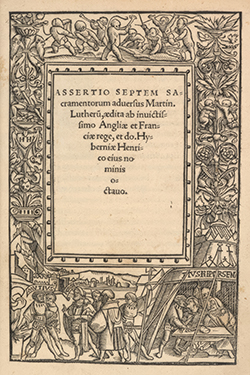 Pope Leo X confers title Defender of the Faith on King Henry VIII for his Assertio septem sacramentorum against Luther.
Pope Leo X confers title Defender of the Faith on King Henry VIII for his Assertio septem sacramentorum against Luther.
(no entry for this year)
1522
Slave Revolt: the Caribbean Slaves rebel on the Caribbean island of Hispaniola, which now comprises Haiti and the Dominican Republic.
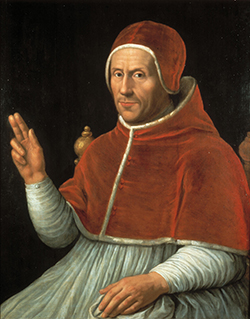 Adrian of Utrecht, Regent of Spain, elected Pope Adrian VI, the last non-Italian Pope for some time.
Adrian of Utrecht, Regent of Spain, elected Pope Adrian VI, the last non-Italian Pope for some time.
(no entry for this year)
1523
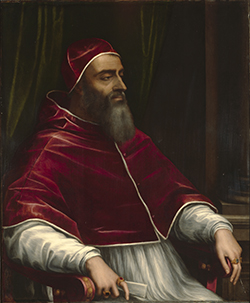 Pope Adrian VI dies, Giulio de' Medici becomes Pope Clement VII. Deemed the most unfortunate of the popes, Clement VII's reign was marked by a rapid succession of political, military, and religious struggles — many long in the making — which had far-reaching consequences for Christianity and world politics. Elected in 1524 at the end of the Italian Renaissance, Clement came to the papacy with a high reputation as a statesman. He had served with distinction as chief advisor to Pope Leo X (1513–1521, his cousin), Pope Adrian VI (1522–1523), and commendably as gran maestro of Florence (1519–1523). Assuming leadership at a time of crisis, with the Protestant Reformation spreading, the Church nearing bankruptcy, and large foreign armies invading Italy, Clement initially tried to unite Christendom by making peace among the many Christian leaders then at odds. He later attempted to liberate Italy from foreign occupation, believing that it threatened the Church's freedom. The complex political situation of the 1520s thwarted Clement's efforts.
Pope Adrian VI dies, Giulio de' Medici becomes Pope Clement VII. Deemed the most unfortunate of the popes, Clement VII's reign was marked by a rapid succession of political, military, and religious struggles — many long in the making — which had far-reaching consequences for Christianity and world politics. Elected in 1524 at the end of the Italian Renaissance, Clement came to the papacy with a high reputation as a statesman. He had served with distinction as chief advisor to Pope Leo X (1513–1521, his cousin), Pope Adrian VI (1522–1523), and commendably as gran maestro of Florence (1519–1523). Assuming leadership at a time of crisis, with the Protestant Reformation spreading, the Church nearing bankruptcy, and large foreign armies invading Italy, Clement initially tried to unite Christendom by making peace among the many Christian leaders then at odds. He later attempted to liberate Italy from foreign occupation, believing that it threatened the Church's freedom. The complex political situation of the 1520s thwarted Clement's efforts.
(no entry for this year)
1524
(no entry for this year)
(no entry for this year)
1525
(no entry for this year)
(no entry for this year)
1526
(no entry for this year)
(no entry for this year)
1527
(no entry for this year)
(no entry for this year)
1528
(no entry for this year)
(no entry for this year)
1529
(no entry for this year)
ESP Quick Facts
ESP Origins
In the early 1990's, Robert Robbins was a faculty member at Johns Hopkins, where he directed the informatics core of GDB — the human gene-mapping database of the international human genome project. To share papers with colleagues around the world, he set up a small paper-sharing section on his personal web page. This small project evolved into The Electronic Scholarly Publishing Project.
ESP Support
In 1995, Robbins became the VP/IT of the Fred Hutchinson Cancer Research Center in Seattle, WA. Soon after arriving in Seattle, Robbins secured funding, through the ELSI component of the US Human Genome Project, to create the original ESP.ORG web site, with the formal goal of providing free, world-wide access to the literature of classical genetics.
ESP Rationale
Although the methods of molecular biology can seem almost magical to the uninitiated, the original techniques of classical genetics are readily appreciated by one and all: cross individuals that differ in some inherited trait, collect all of the progeny, score their attributes, and propose mechanisms to explain the patterns of inheritance observed.
ESP Goal
In reading the early works of classical genetics, one is drawn, almost inexorably, into ever more complex models, until molecular explanations begin to seem both necessary and natural. At that point, the tools for understanding genome research are at hand. Assisting readers reach this point was the original goal of The Electronic Scholarly Publishing Project.
ESP Usage
Usage of the site grew rapidly and has remained high. Faculty began to use the site for their assigned readings. Other on-line publishers, ranging from The New York Times to Nature referenced ESP materials in their own publications. Nobel laureates (e.g., Joshua Lederberg) regularly used the site and even wrote to suggest changes and improvements.
ESP Content
When the site began, no journals were making their early content available in digital format. As a result, ESP was obliged to digitize classic literature before it could be made available. For many important papers — such as Mendel's original paper or the first genetic map — ESP had to produce entirely new typeset versions of the works, if they were to be available in a high-quality format.
ESP Help
Early support from the DOE component of the Human Genome Project was critically important for getting the ESP project on a firm foundation. Since that funding ended (nearly 20 years ago), the project has been operated as a purely volunteer effort. Anyone wishing to assist in these efforts should send an email to Robbins.
ESP Plans
With the development of methods for adding typeset side notes to PDF files, the ESP project now plans to add annotated versions of some classical papers to its holdings. We also plan to add new reference and pedagogical material. We have already started providing regularly updated, comprehensive bibliographies to the ESP.ORG site.
ESP Picks from Around the Web (updated 06 MAR 2017 )
Old Science
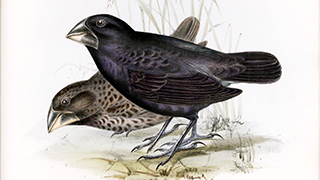
Weird Science
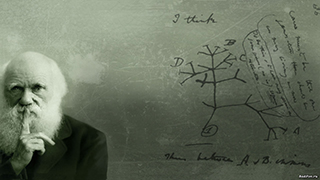
Treating Disease with Fecal Transplantation
Fossils of miniature humans (hobbits) discovered in Indonesia
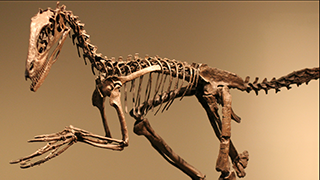
Dinosaur tail, complete with feathers, found preserved in amber.
Astronomy

Mysterious fast radio burst (FRB) detected in the distant universe.